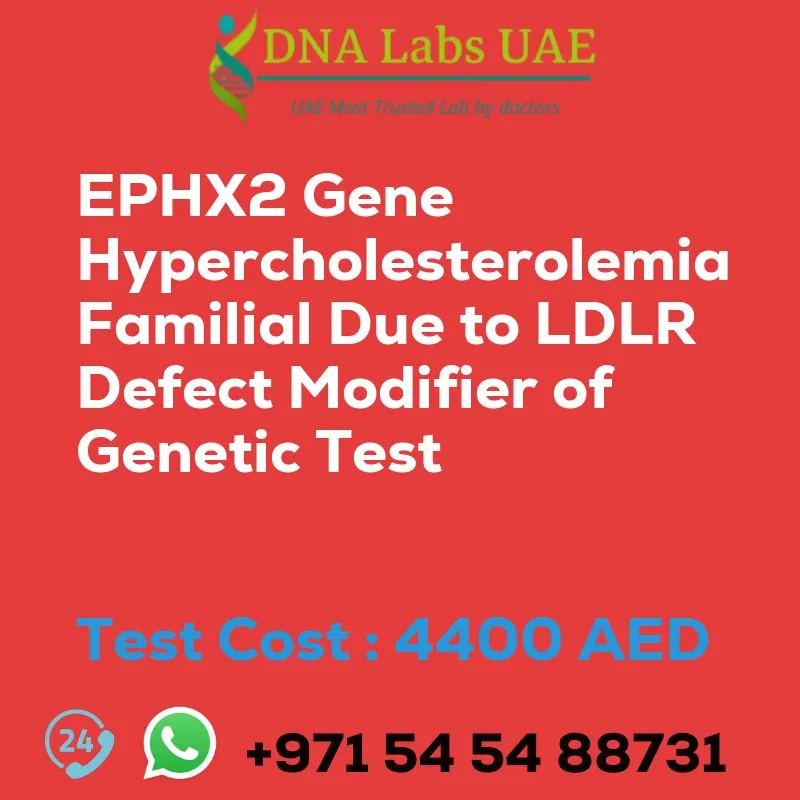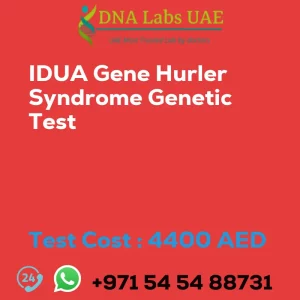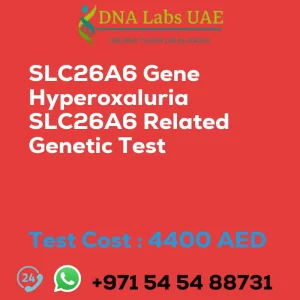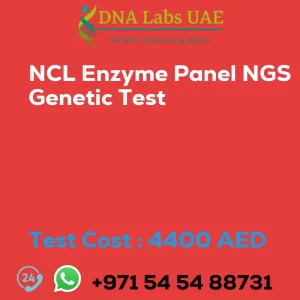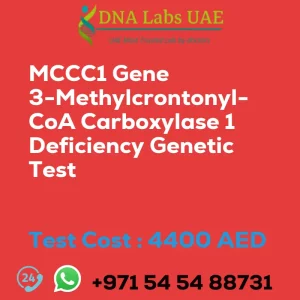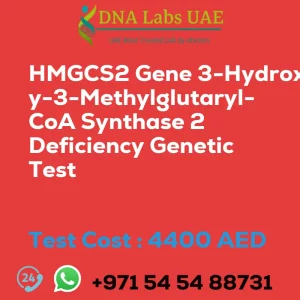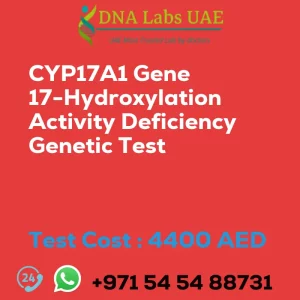EPHX2 Gene Hypercholesterolemia familial due to LDLR defect modifier of Genetic Test
Genetic testing plays a crucial role in identifying and understanding various genetic disorders. One such test is the EPHX2 Gene Hypercholesterolemia familial due to LDLR defect modifier of Genetic Test offered by DNA Labs UAE.
Test Details
The EPHX2 gene hypercholesterolemia, familial, due to LDLR defect, modifier of NGS genetic test is a type of genetic test that is used to identify mutations or variants in the EPHX2 gene that may contribute to familial hypercholesterolemia (FH) in individuals with an LDLR defect.
Familial hypercholesterolemia is a genetic disorder characterized by high levels of low-density lipoprotein cholesterol (LDL-C) in the blood. It is primarily caused by mutations in the LDL receptor (LDLR) gene, which is involved in the removal of LDL-C from the bloodstream. However, other genetic factors, such as variants in the EPHX2 gene, can modify the severity of FH in individuals with an LDLR defect.
The EPHX2 gene provides instructions for making an enzyme called soluble epoxide hydrolase (sEH), which is involved in the metabolism of fatty acids. Variants in this gene can affect the activity of sEH and may influence the levels of LDL-C in individuals with FH.
The NGS (Next-Generation Sequencing) genetic test is a high-throughput method used to analyze multiple genes simultaneously. It allows for the identification of genetic variants or mutations in multiple genes, including the LDLR and EPHX2 genes, which are associated with FH.
By identifying mutations or variants in the EPHX2 gene, this genetic test can provide additional information about the severity and progression of FH in individuals with an LDLR defect. This information can be useful for personalized treatment and management strategies, such as adjusting medication dosage or implementing lifestyle changes to lower LDL-C levels.
It is important to note that this genetic test is typically performed in conjunction with other tests, such as LDLR gene sequencing, to comprehensively evaluate the genetic factors contributing to FH. Additionally, genetic counseling is often recommended before and after undergoing genetic testing to help individuals understand the implications of the test results and make informed decisions about their healthcare.
Test Name: EPHX2 Gene Hypercholesterolemia familial due to LDLR defect modifier of Genetic Test
Components:
- Price: 4400.0 AED
- Sample Condition: Blood or Extracted DNA or One drop Blood on FTA Card
- Report Delivery: 3 to 4 Weeks
- Method: NGS Technology
- Test Type: Metabolic Disorders
- Doctor: General Physician
- Test Department: Genetics
Pre Test Information:
Clinical History of Patient who is going for EPHX2 Gene Hypercholesterolemia, familial, due to LDLR defect, modifier of NGS Genetic DNA Test. A Genetic Counselling session to draw a pedigree chart of family members affected with Hypercholesterolemia, familial, due to LDLR defect, modifier of.
| Test Name | EPHX2 Gene Hypercholesterolemia familial due to LDLR defect modifier of Genetic Test |
|---|---|
| Components | |
| Price | 4400.0 AED |
| Sample Condition | Blood or Extracted DNA or One drop Blood on FTA Card |
| Report Delivery | 3 to 4 Weeks |
| Method | NGS Technology |
| Test type | Metabolic Disorders |
| Doctor | General Physician |
| Test Department: | Genetics |
| Pre Test Information | Clinical History of Patient who is going for EPHX2 Gene Hypercholesterolemia, familial, due to LDLR defect, modifier of NGS Genetic DNA Test A Genetic Counselling session to draw a pedigree chart of family members affected with Hypercholesterolemia, familial, due to LDLR defect, modifier of |
| Test Details |
EPHX2 gene hypercholesterolemia, familial, due to LDLR defect, modifier of NGS genetic test is a type of genetic test that is used to identify mutations or variants in the EPHX2 gene that may contribute to familial hypercholesterolemia (FH) in individuals with an LDLR defect. Familial hypercholesterolemia is a genetic disorder characterized by high levels of low-density lipoprotein cholesterol (LDL-C) in the blood. It is primarily caused by mutations in the LDL receptor (LDLR) gene, which is involved in the removal of LDL-C from the bloodstream. However, other genetic factors, such as variants in the EPHX2 gene, can modify the severity of FH in individuals with an LDLR defect. The EPHX2 gene provides instructions for making an enzyme called soluble epoxide hydrolase (sEH), which is involved in the metabolism of fatty acids. Variants in this gene can affect the activity of sEH and may influence the levels of LDL-C in individuals with FH. The NGS (Next-Generation Sequencing) genetic test is a high-throughput method used to analyze multiple genes simultaneously. It allows for the identification of genetic variants or mutations in multiple genes, including the LDLR and EPHX2 genes, which are associated with FH. By identifying mutations or variants in the EPHX2 gene, this genetic test can provide additional information about the severity and progression of FH in individuals with an LDLR defect. This information can be useful for personalized treatment and management strategies, such as adjusting medication dosage or implementing lifestyle changes to lower LDL-C levels. It is important to note that this genetic test is typically performed in conjunction with other tests, such as LDLR gene sequencing, to comprehensively evaluate the genetic factors contributing to FH. Additionally, genetic counseling is often recommended before and after undergoing genetic testing to help individuals understand the implications of the test results and make informed decisions about their healthcare. |

